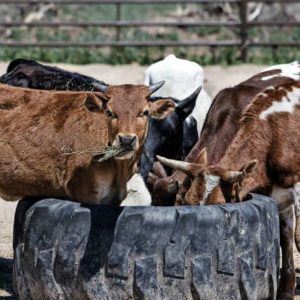Did you know that studies have shown that children who grow up interacting with animals show an increase in empathy and compassion? Or that children who are consistently around animals have a better immune response and are less likely to get respiratory infections? Beyond these facts, it’s hard to deny that children are often fascinated by animals of all shapes, sizes, and species and outside of the family home, one of the ways that children get to see these amazing creatures in person is to visit the zoo.
Zoos, both regular and petting zoos, are wonderful but in order for everyone to have a safe and comfortable visit, certain safety standards and procedures must be in place.
See more articles about personal injuries: https://banvillelaw.com/value-pain-suffering/
One fall afternoon, a family went to a petting zoo where their 10-year-old daughter became enamored with the cows. She spent the afternoon petting and feeding the cows and all seemed to go well.
A few days later, she began to complain that she didn’t feel well and her parents noted that she had a fever, cramps, and diarrhea. Her parents were unable to treat her with over the counter medications and she worsened so her parents made the decision to take her to the emergency room.
At the ER, she was diagnosed with an E. coli infection.
Although it is true that humans and animals do typically have some form of E. coli in their GI tract, certain strains can cause a serious infection.
Symptoms include:
These symptoms usually begin within 1 - 10 days of infection and can last 5 - 10 days. In 5 - 10% of cases, patients can develop a condition known as a hemolytic uremic syndrome which is a complex immune reaction that results in damage to the red blood cells. This damage occurs because toxins enter the bloodstream and ultimately, those toxins may damage the kidneys.
That’s exactly what happened to the 10-year-old in this case. She was diagnosed with kidney failure and although doctors were able to reverse it, she ultimately lost 50% function in her kidneys.
She will likely require dialysis and a kidney transplant in the future because of the damage. Due to the necessary treatments, her past medical bills have already reached more than $300,000 and doctors estimate that she may need an additional $2 million in medical care in the future.
While trying to determine how she was infected, the patient’s parents discovered that at least 6 other people who had visited the petting zoo at the same time became ill within days. They chose to pursue legal action, filing a lawsuit that alleged the zoo had failed to keep visitors safe from any diseases that the cows could potentially transmit.
The complaint further alleged that the zoo failed to place handwashing stations or put warning signs near the enclosures about the risk of being exposed to bacteria. They sought to regain damages that would cover their child’s medical bills, physical suffering, and future earning capacity.
The case did go to trial and the plaintiffs had an expert public health veterinarian testify that if the facility had been properly designed, their daughter's infection could have been prevented. In addition to the veterinarian, a nephrologist testified that the dialysis and transplant that were likely going to be needed would greatly impact her ability to be employed.
The zoo claimed that they were unaware of any diseases that could be transmitted to humans and that they had provided an alcohol based hand sanitizer for visitors to clean themselves with. In addition to this, they asserted that the plaintiffs were aware of the sanitizer but failed in their duty to make sure their child had used it before she ate anything.
At the end of the trial, the jury determined that the zoo was at fault and awarded the plaintiffs a total of $7.55 million - $3 million for the child’s lost earning capacity, $2 million for the future medical treatments, and $550,000 for pain and suffering.
It’s not just infections that visitors need to be protected from. Plaintiffs who have filed lawsuits have also been injured due to:
Sidewalk cracks, broken steps, and spilled liquids have all caused zoo visitors to become injured.
Did you know that the average zoo has at least five animal escapes every year? Many of those animals are extremely dangerous and can hurt visitors.
Many zoos have trains and other rides that have the potential to malfunction and cause riders serious harm.
It is the responsibility of the zoo owners, managers, and employees to do everything in their power to make sure that these accidents don’t happen, otherwise, they may be held legally responsible.
Read more accident-relatedr cases in NY: https://banvillelaw.com/accident-report-february-5-2016/